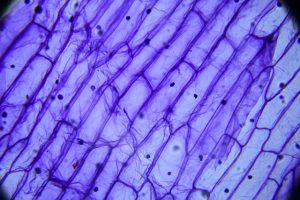Decoding the Science Behind Addiction Recovery: A Brain and Genetic Perspective
🔍 The Science of Addiction Recovery delves into the complex brain changes and genetic factors that underpin substance use disorders. It combines neurobiological insights with advanced treatments, including pharmacotherapies and behavioral therapies, to…….

🔍 The Science of Addiction Recovery delves into the complex brain changes and genetic factors that underpin substance use disorders. It combines neurobiological insights with advanced treatments, including pharmacotherapies and behavioral therapies, to address the physiological and psychological aspects of addiction. This holistic approach leverages the brain's plasticity to restore normal functioning and promote sustained abstinence. Genetic predispositions are considered to personalize treatment plans, ensuring that recovery strategies are tailored to each individual's unique needs, thereby enhancing overall outcomes and well-being in the journey of addiction recovery.
Exploring the complex and multifaceted nature of addiction recovery, this article delves into the scientific underpinnings that inform effective treatment and recovery strategies. From the intricate workings of the brain to the pivotal role of genetics, environment, and psychological factors, each section unravels a unique aspect of the recovery journey. We examine the latest research on medications, therapies, and holistic approaches that facilitate healing, emphasizing the importance of personalized treatment plans, community support, and neuroplasticity in re-wiring the brain for sobriety. This comprehensive guide also addresses co-occurring disorders, the impact of family dynamics, and the influence of technology on recovery. By considering a continuum of care and monitoring progress through biomarkers, we aim to redefine success in addiction recovery, beyond mere abstinence, and address legal, societal, and ethical considerations that shape individual experiences. Join us as we explore ‘The Science of Addiction Recovery’ and chart the path toward a healthier future for those affected by substance use disorders.
- Understanding Addiction Through a Scientific Lens
- The Brain's Response to Substance Abuse and Recovery
- Genetic Predispositions and Addiction Susceptibility
Understanding Addiction Through a Scientific Lens
The science of addiction recovery is a multifaceted field that delves into the complex biology and psychology underlying substance use disorders. At its core, addiction is characterized by compulsive drug-seeking behavior despite adverse consequences, a phenomenon that can be understood through various scientific lenses. Neurobiologically, addiction alters the brain’s reward system, leading to changes in neural circuits that drive an individual to seek out drugs. This process involves the disruption of neurotransmitter systems, particularly dopamine pathways, which are critical for feelings of pleasure and motivation. The repeated exposure to addictive substances can lead to tolerance, where larger amounts of a drug are needed to achieve the desired effect, and dependence, where the body adapts to the presence of the drug, resulting in withdrawal symptoms upon cessation.
Recovery from addiction, therefore, involves correcting these imbalances through scientifically informed treatments that address both the physiological and psychological aspects of the disorder. Medications are used to manage cravings and prevent relapse by targeting the brain’s reward mechanisms. Behavioral therapies, on the other hand, help individuals modify their behaviors and cope with triggers, effectively equipping them with strategies to maintain long-term sobriety. The integration of these approaches within addiction recovery protocols is grounded in a robust body of scientific research, which continues to evolve as we learn more about the underlying mechanisms of addiction and the most effective pathways to recovery. Through ongoing scientific investigation, we can offer hope to those affected by addiction, paving the way for more personalized and successful interventions.
The Brain's Response to Substance Abuse and Recovery
Neuroscientific research has elucidated the intricate changes that occur within the brain during substance abuse and the promising transformations that take place in recovery, which are integral to understanding the science of addiction recovery. Substance abuse leads to long-term alterations in brain structure and function, particularly affecting regions responsible for reward, motivation, and memory. Prolonged exposure to substances of abuse can disrupt the normal balance of neurotransmitters like dopamine, creating a heightened reward response that can drive compulsive drug-seeking behavior. This disruption becomes encoded into neural pathways, making it challenging for individuals to abstain from substance use.
However, with sustained abstinence and supportive interventions, the brain’s plasticity allows for recovery and restoration of its function. Recovery involves the rebuilding of damaged neural connections and the gradual reshaping of the reward system. This process can be facilitated through cognitive-behavioral therapy, medication-assisted treatment, and other therapeutic modalities that help to normalize brain activity and reintroduce healthy patterns of behavior. The science of addiction recovery is an evolving field, with ongoing research into how various treatments can optimize the brain’s healing potential, ultimately leading to sustained abstinence and improved cognitive and emotional functioning in individuals recovering from substance abuse.
Genetic Predispositions and Addiction Susceptibility
The intricate relationship between genetic predispositions and addiction susceptibility is a critical aspect of the science of addiction recovery. Research has consistently indicated that genetics play a significant role in vulnerability to substance use disorders. Certain genetic factors can increase the likelihood of developing an addiction, influencing how individuals respond to various substances and their propensity for addictive behaviors. These predispositions affect neurotransmitter systems within the brain, particularly those involved in reward, motivation, and reinforcement learning. Understanding these hereditary influences is essential for personalized treatment approaches, enabling healthcare providers to tailor interventions that consider an individual’s unique genetic makeup. By integrating advancements in genomics with clinical practices, recovery strategies can be more effective, addressing the root biological causes alongside psychological and environmental factors. This holistic approach underscores the importance of a comprehensive understanding of the science of addiction recovery, ensuring that treatment plans are not one-size-fits-all but are instead informed by an individual’s genetic profile, thereby enhancing their chances for sustained recovery.
Recovery from addiction is a complex journey that involves intricate biological, psychological, and social processes. By examining addiction through the lens of science, we gain a deeper understanding of its impact on the brain and the potential for recovery. The latest research indicates that by addressing genetic predispositions and understanding the brain’s response to substance abuse, personalized treatment plans can be developed to aid in the recovery process. The science of addiction recovery is evolving rapidly, offering hope for individuals affected by this chronic disease. As we continue to explore the mechanisms underlying addiction and recovery, the promise of effective interventions becomes more tangible, paving the way for a future where recovery is not just possible but probable for those who seek it.









